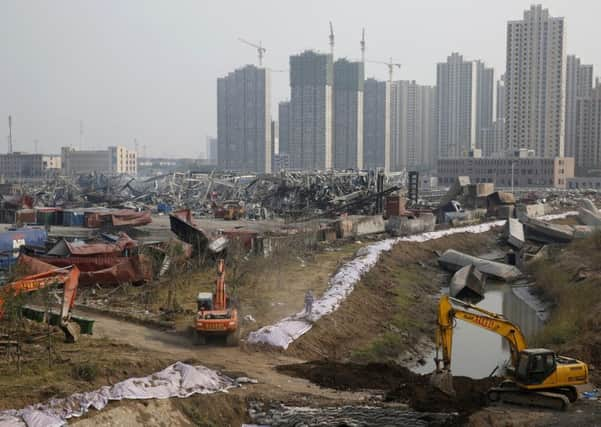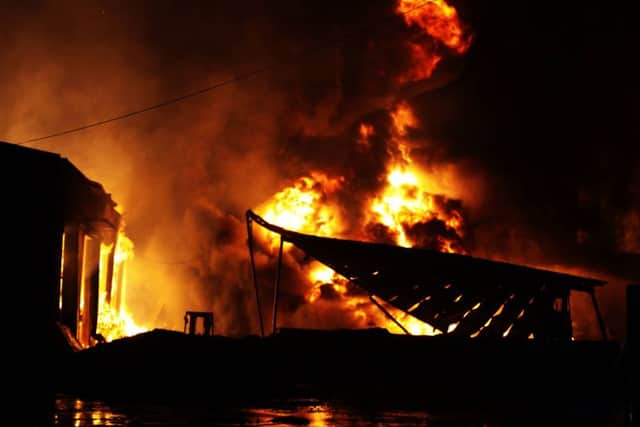Angry residents demand damages after Tianjin blasts


The blasts on Wednesday night originated at a warehouse for hazardous material, where 700 tons of sodium cyanide – a toxic chemical that can form combustible substances on contact with water – were being stored in amounts that violated safety rules.
That has prompted contamination fears and a major clean-up of a 3km-radius area, which has been cordoned off.
Advertisement
Hide AdAdvertisement
Hide AdChinese work safety rules require such facilities to be at least 1,000 metres away from residences, public buildings and highways.


But online map searches show the Ruihai International Logistics warehouse was within 500m of both an expressway and an apartment complex. Those apartments had walls singed and windows shattered, and all the residents have been evacuated.
“We victims demand: government, buy back our houses,” said a banner carried by the residents at a protest outside the Tianjin hotel where officials have held daily news conferences about the disaster. “Kids are asking: How can we grow up healthy?” read another banner.
Tianjin officials have been hard-pressed to explain how the warehouse was allowed to operate in its location.
Questions also have been raised about the management of the warehouse, and prosecutors have set up a team to investigate possible offences related to the massive blasts, including dereliction of duty and abuse of power.
Ruihai’s general manager is in hospital under police watch.
Bian Jiang, a resident of one of the nearby housing complexes, said he was asleep when the first explosion struck, shortly before midnight.
“Twenty seconds later, I heard the second explosion and saw the rising mushroom cloud. Then, I was thrown out of bed by the force of the blast. I was wondering if we would able to get out alive,” he said, adding that his home was now ruined. “All the windows are gone.”
Advertisement
Hide AdAdvertisement
Hide AdYesterday, He Shushan, a deputy mayor, confirmed there had been 700 tons of the toxic chemical sodium cyanide on the site at the time of the blasts, although the authorities said there have not been any substantial leaks. Authorities also said they had sealed all waterways leading into the sea from the blast site and built retention walls to prevent any runoff.
Sodium cyanide is a toxic chemical that can form a flammable gas upon contact with water, and several hundred tons would be a clear violation of rules that the warehouse could store no more than 10 tons at a time.
Tianjin officials have ordered a citywide check on any potential safety risks and violation of fire rules, mandating suspension of operations for factories that cannot immediately comply with safety rules.
The death toll includes at least 21 firefighters – making the disaster the deadliest for Chinese fire crews in more than six decades – and 64 others remain missing. The public has raised concerns over whether the hazardous material was properly taken into account in the way the firefighters responded.